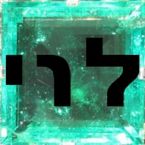Kohath
 From Conservapedia
From Conservapedia Kohath (Hebrew קְהָ֔ת) (ca. 2288 AM–ca. 2421 AM) (1716 BC–1513 BC) was the second son of Levi and the progenitor of the first ranking branch of the Levites. He is the only son of Levi for whom a definite life span (133 years) is given. He is also the ancestor of the major lines of High Priests of ancient Israel.
Contents
Life and family[edit]
Kohath was born in Canaan. Though the Bible gives no specific date for his birth or for his death, the Bible does say that he lived for 133 years. Floyd Nolen Jones estimates, in The Chronology of the Old Testament, that Kohath was born in 1716 BC and entered Egypt ten years later with his father and two brothers, Gershon and Merari.
He had one sister, Jochebed, in addition to his brothers. The Bible does not reveal the name of his wife. He died in Egypt and left four sons, whom he probably began to engender when he was 60 years old. His first-named son, Amram, became the father of the first of the leaders and Judges of Israel, and the first of its high priests.[1]
Position of his descendants[edit]
In the wilderness[edit]
The Kohathites held a highly privileged and sensitive position in the camp of Israel during its forty years in the wilderness. Specifically, the Kohathites were entrusted with carrying the furnishings of the Holy Place and Holy of Holies of the Tabernacle. While the Israelites were encamped, the Kohathites would encamp to the south of the Tabernacle. While the Israelites were on the march, the Kohathites would march ahead of the Gershonites and carry the Ark of the Covenant, the Table of Showbread, the seven-branched Lampstand, the Brass Altar, the Altar of Incense, and the vessels of the Holy Place. (Numbers 3:29-31 ) They needed to take care not to touch any of those articles until Aaron and his sons had prepared them properly for transport. The immediate consequence of touching any of these objects out-of-turn, especially the Ark of the Covenant, was death. (Numbers 4:15,17-20 )[2][3][4]
In the land[edit]
After the Israelites took possession of Canaan, the priestly line were alloted thirteen cities in Judahite, Simeonite, and Benjamite territory. Ten more cities in Ephraimite, Danite, and western Manassite territory were alloted to the remaining Kohathites.[2][3]
Representative descendants[edit]
Kohath's descendants included some of the most famous of the Israelites, and also some of the most infamous. Moses and Aaron were, of course, two of Kohath's grandsons. From Aaron came a line of high priests that continued nearly unbroken through the ages of the Judges, the United Kingdom of Israel, the Kingdom of Judah, the Babylonian Captivity, and the Restoration. Judge Samuel was another famous Kohathite. Yet another grandson of Kohath, Korah, led a mutiny against Moses; for that he was executed directly by God Himself. Two of the sons of Aaron, Nadab and Abihu, died after they offered "strange fire" to God (in the Holy of Holies itself, the most serious breach of duty and discipline of which they were capable). Jonathan, a great-grandson of Kohath, established an illegal priestly line for the Danites that lasted until the land was captured by Tiglath-pileser III. (Judges 17-18 )
References[edit]
- ↑ Jones, Floyd N. The Chronology of the Old Testament. Green Forest, AR: Master Books, 2004, Chart 3A.
- ↑ 2.0 2.1 Brand C, Draper C, England A, et al., eds. Holman Illustrated Bible Dictionary. Nashville, TN: Holman Bible Publishers, 2003, p. 1000
- ↑ 3.0 3.1 Hirsch EG and Seligsohn M. "Kohath." The Jewish Encyclopedia, 2002. Accessed November 24, 2008.
- ↑ "Kohath, Gershon, and Merari." Foolforhim.com, n.d. Accessed November 24, 2008.
See also[edit]
| ||||||||||||||||||||||
Categories: [Old Testament] [Jewish People]
↧ Download as ZWI file | Last modified: 02/28/2023 21:53:48 | 25 views
☰ Source: https://www.conservapedia.com/Kohath | License: CC BY-SA 3.0
 ZWI signed:
ZWI signed:
 KSF
KSF